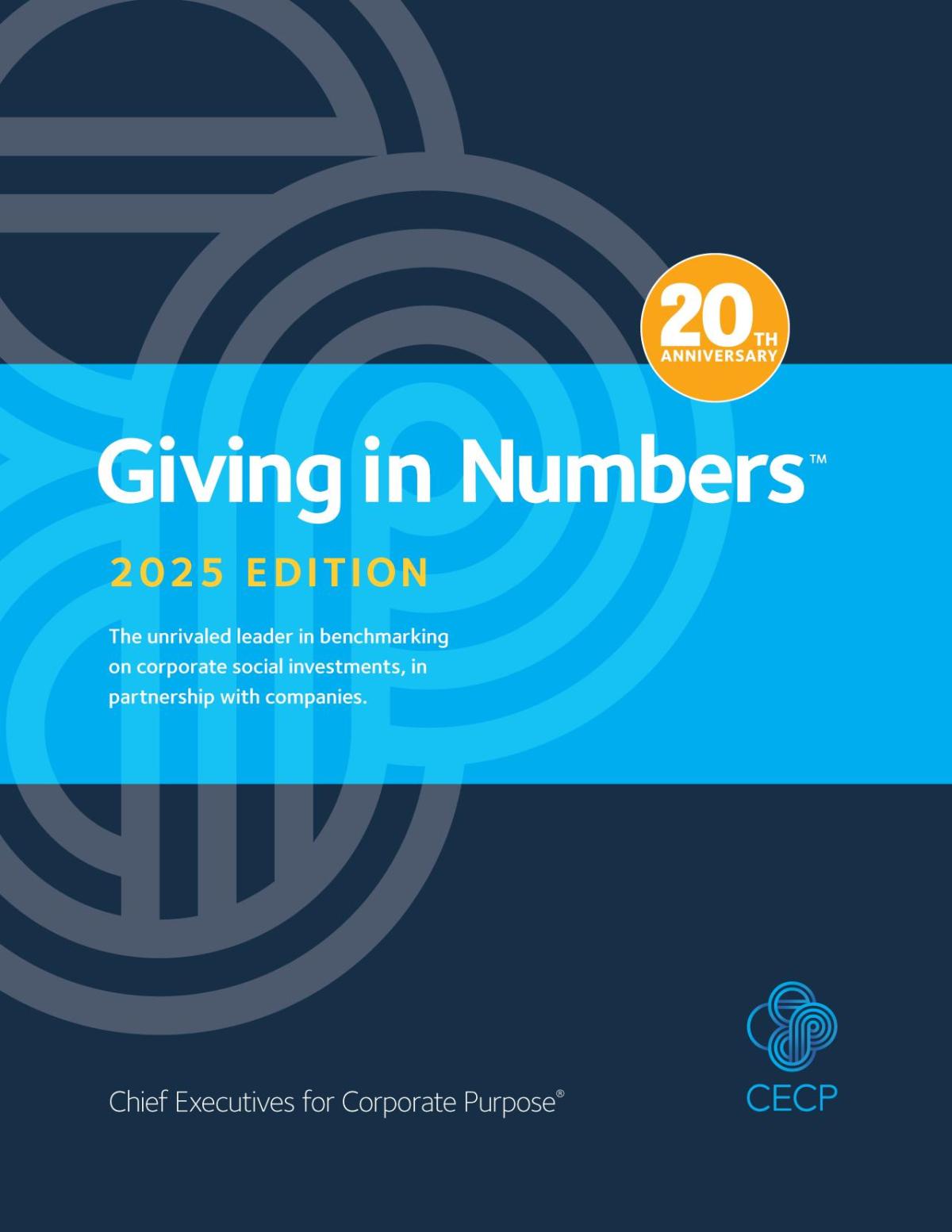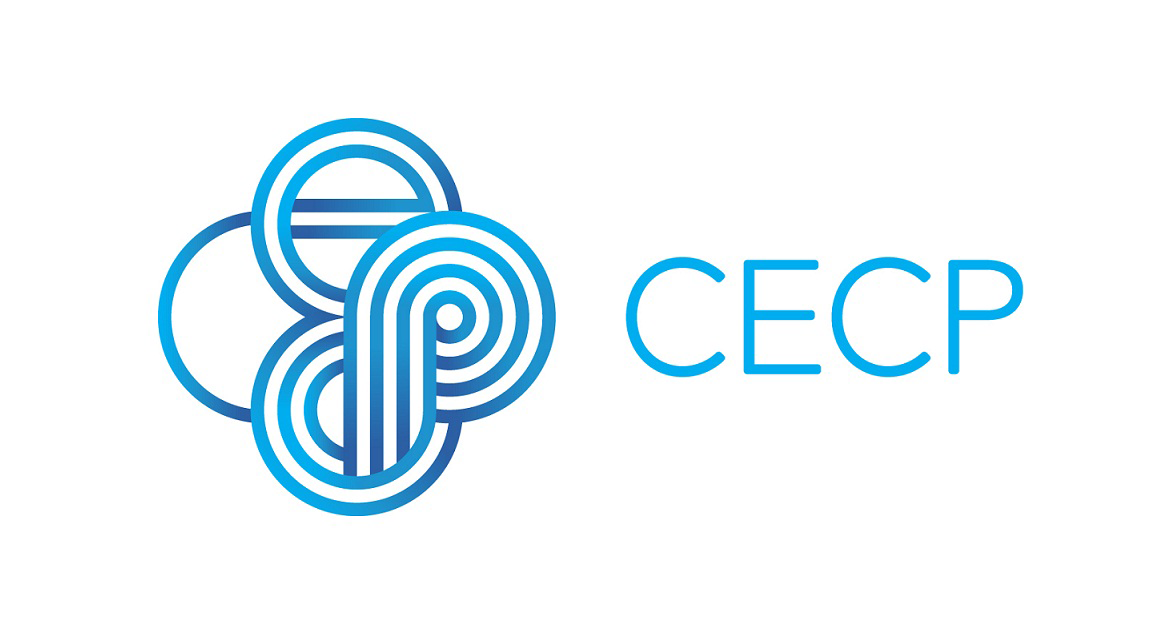Giving in Numbers™: 2025 Edition – Companies Aligning Business Practices with Purpose Report 25% Higher Revenue and 22% Higher Pre-Tax Profit

NEW YORK, October 16, 2025 /3BL/ - Despite an ever-changing operating environment, companies that align their business practices with corporate purpose continue to outperform their peers, according to Chief Executives for Corporate Purpose®’s (CECP) Giving in Numbers™: 2025 Edition. In 2024, 87% of companies had a corporate purpose statement, and over 90% used it to guide both social investment and broader business decisions. Among a matched set of companies, 67% had metrics in place to align business practices with their purpose, up from 58% in 2020. These purpose-aligned companies experienced a 31% increase in median pre-tax profit between 2023 and 2024, compared to just 3% for companies without such metrics—demonstrating a strong correlation between purpose integration and financial performance.
Median Total Community Investment (TCI) for all companies participating in Giving in Numbers in 2024 was US$21.5million, which includes direct cash, foundation cash, and non-cash such as product donations or pro bono services. Despite inflationary pressures, the median TCI increased by 5% between 2022 and 2024, though it declined 16% from 2020 levels in a matched set. A matched set of companies over three years—2022 and 2024—shows stark differences in median TCI for each program area.
- Increases:
- Community and Economic Development: 22%
- Civic and Public Affairs: 18%
- Environment: 12%.
- Decreases:
- Disaster Relief: 41%
- Higher Education: 30%
- K-12 Education: 24%
- Culture and Arts: 13%
- Health and Social Services: 2%
The decrease in Education funding and the increase in investment in Community and Economic Development may be two sides to the same coin. As many companies move to better marry their social investment and business priorities, the more immediate effects of workforce development and strengthened economic conditions may be more appealing than the long-term payoff of educational investment.
CECP’s Giving in Numbers™ remains the premier industry survey and research, providing standard-setting criteria in a go-to guide that has defined the field and advanced the movement. Over 24 years, CECP has created the largest and most historical dataset on industry trends, data shared by more than 650 multi-billion-dollar companies, representing more than US$510 billion in corporate social investments over that time. Embraced by professionals across all sectors globally, Giving in Numbers shows how corporations invest in society through cash and in-kind/product, employee volunteerism and giving, and impact measurement. Whether it’s by answering quick questions or facilitating in-depth presentations to company teams, boards, and CEOs, CECP serves as a trusted advisor to companies, providing and analyzing the crucial data that they need to advance their strategy and measure the business value.
Additional key findings include:
- Disaster Relief experienced the steepest decline in median TCI between 2022 and 2024, dropping by 41%, suggesting companies may be responding more selectively to crises over time. However, Military and Veterans Causes had the largest adoption as a focus area from 2022 to 2024 in a matched set of companies, growing by 75%.
- Volunteer participation rate averaged 25%, with smaller companies and the Materials industry showing the highest engagement rates. Those with fewer than 10,000 employees had a 31% volunteer participation rate, compared to the 16% participation rate of companies with over 100,000 employees. Smaller companies may have stronger local community ties that make volunteering more accessible.
- Employee engagement extended beyond giving and volunteering, with 94% of companies supporting Employee Resource Groups and over 70% offering sustainability and mentorship initiatives. This may be because companies are increasingly recognizing that employee engagement drives retention, performance, and culture, prompting them to expand support beyond volunteering.
- Median management and program costs decreased by 22% in three years, suggesting that operations have become more streamlined and efficient.
- In 2024, Human Resources (HR) was the most common department overseeing societal/community investments and employee matching gifts and volunteering, cited by 20% of companies. This may be because HR departments are a natural fit to oversee societal investments, matching gifts, and volunteering programs that align with talent, culture, and organizational values.
- As CSR and ESG functions continue to converge, the scope of Full Time Employee (FTE) responsibilities is expanding beyond grants management. While the number of recipients and budget sizes (program costs decreased by 22% in three years) may be shrinking, new duties such as impact measurement, stakeholder engagement, and cross-functional collaboration are increasingly part of the role.
- In 2024, 77% of surveyed companies had foundations or trusts. Foundations offer benefits beyond the ability to diversify strategy, with 84% of companies perceiving raising community awareness as one of the unique benefits of having a foundation.
- Measurement and evaluation, particularly of grants and nonprofit partnerships, are still important practices among companies. The most common evaluative data collected are both outputs and outcomes, at 80% of companies, followed by program activities, at 76%
“As the data shows, companies that align their purpose with business strategy are not only doing well—they’re doing good,” said Daryl Brewster, CEO of Chief Executives for Corporate Purpose. “Purpose is no longer a side initiative or a communications exercise; it is a strategic imperative. Companies that embed purpose into their operations, measurement, and decision-making are seeing tangible business benefits—from stronger financial performance to deeper stakeholder trust and long-term resilience.”
Giving in Numbers™ provides helpful insights to practitioners seeking to find information quickly to benchmark their own programs against their peers, as well as information on trends to provide contextual summaries for anyone looking to understand how and why the field is changing. One such case study highlighted in the report is Citi, which celebrated the 20th anniversary of Global Community Day—its annual tradition of coming together as a worldwide team through volunteerism. For its 20th anniversary, Citi recorded over 114,000 volunteer hours across more than 80 countries and territories. Volunteers partnered with community organizations at the forefront of addressing local needs, including painting classrooms, packing food baskets, and cleaning parks and beaches.
CECP thanks its sponsors for their generous support of CECP’s Giving in Numbers™: 2025 Edition Altria, Entergy, Citi, Wells Fargo, Chevron, Moody’s, and Travelers.
Key insights from the Giving in Numbers Survey of 2024 data were released at the CECP Summit in May 2025. CECP-affiliated companies can access a custom analysis of the data at no additional cost through CECP’s secure online portal on MyCECP or by contacting CECP.
Note to Editors: the report author is available for comment and a more in-depth look at the community investment data collected from 189 of the world’s largest companies.
CECP Media Contact
Katie Leasor
kleasor@cecp.co
###
About Chief Executives for Corporate Purpose (CECP)
Chief Executives for Corporate Purpose® (CECP) is the only nonpartisan business counsel and network dedicated to driving measurable returns on purpose. We promote responsible purpose-driven business as it increases customer loyalty, builds employee engagement, improves brand trust, attracts top talent, connects with strategic investors, and contributes to the bottom line.
More than 200 of the world’s leading companies seek to improve their return on purpose through access to CECP's solutions in insights and benchmarking. With our companies, we harness the power of purpose for business, stakeholders, and society.
For more information, visit http://cecp.co.

